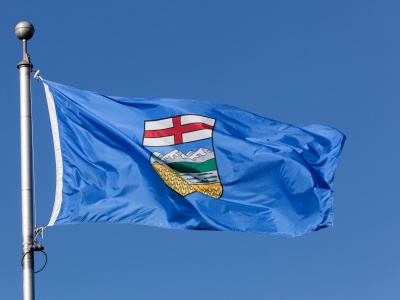A step back from fiscal transparency and accountability by the Alberta government

With the introduction of recent amendments under Bill 10 to Alberta’s fiscal framework, known as the Sustainable Fiscal Planning and Reporting Act (SFPRA), the Alberta government is taking a step back from fiscal transparency and accountability.
The amendment in question narrows the reporting period for the second quarter (2Q) Mid-year Fiscal Update and Economic Statement from the current fiscal year (2024/25) and subsequent two fiscal years (2025/26 and 2026/27) to just the current fiscal year (2024/25). In the Budget 2024 documents, the government suggested that this amendment was being brought forward to merely update requirements for the 2Q fiscal update and economic statement.
However, this reporting format change to the 2Q report, if adopted, is inconsistent with the recommendations of the 2019 MacKinnon Panel Report on Alberta’s Finances. The Panel members recommended, at that time, that the Government of Alberta reflect “best practice”, and prepare a comprehensive 2Q Mid-Year Fiscal Update and Economic Statement by November 30 of each fiscal year to serve as a full three-year update on the government’s budget. The Alberta government fully accepted this recommendation and began 2Q reporting on a multi-year basis, beginning with the 2020-21 Mid-year Fiscal Update and Economic Statement.
So, what has changed now? Why is the Alberta government moving away from “best practice” for multi-year reporting already established by the Government of Canada, the Government of Ontario, the Government of Quebec, and the Government of B.C.? Why not leave the section as it was originally intended by the UCP government, back in 2019?
According to the current Minister of Finance and President of Treasury Board, it appears to be a workload issue: “Lastly, three amendments are proposed to the Sustainable Fiscal Planning and Reporting Act. The first is to streamline mid-year government reporting. The department would report on the current year, dropping the three-year outlook that is always updated just a few months later at budget. That would mean budget preparations such as consultation with other ministries could begin earlier. Our commitment to fiscal reporting, as recognized by credit-rating agencies like S&P Global Ratings and DBRS Morningstar, would remain timely and transparent.” If this is simply a workload issue, then how do the governments of Ontario, Quebec, and B.C. have the capacity to prepare far more comprehensive multi-year updates of their fiscal plans, than does Alberta?
Perhaps, there are other explanations at play here, but we hope not. We see a better solution. That is we should continue to prepare the multi-year 2Q report as the Alberta government has done since 2020/21, but to enhance their usefulness so they are comparable with “best practice” multi-year, mid-year fiscal and economic updates released by the governments of Ontario, Quebec, and B.C. Also, it is now time to legislate a commitment to regularly release a long-term fiscal plan, as outlined by the Premier in her recent TV address. Let’s legislate the requirement for the release of this long-term fiscal plan, as part of the SFPRA, similar to what already occurs in Ontario, under its Fiscal Sustainability, Transparency and Accountability Act.
Summarizing, the proposed change to the 2Q fiscal and economic update reporting time frame in Bill 10 is a step back from fiscal transparency and accountability and “best practice” in mid-year financial reporting in Alberta. This change would set an extremely disappointing precedent for the Alberta government. Instead, let’s take a step forward in fiscal transparency and accountability and maintain the requirement for a multi-year reporting format for Alberta’s 2Q report and also legislate within the SFPRA the requirement for the regular release of a long-term fiscal plan for Alberta, as recently outlined by the Premier.
Lennie Kaplan is a former senior manager in the Fiscal and Economic Policy Division of Alberta’s Ministry of Treasury Board and Finance (TB&F) where, among other duties, he examined best practices in fiscal planning. In 2019, Mr. Kaplan served as Executive Director to the MacKinnon Report on Alberta’s Finances. He recently retired from his position as Executive Director of Research at the Canadian Energy Centre.


